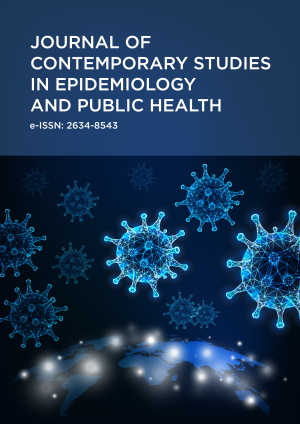Abstract
The consequences of unwanted pregnancy are a public health concern and the knowledge of pharmacists on contraceptives is important being the most accessed healthcare provider. The study assessed the knowledge of community pharmacists in Ibadan, Oyo State, Nigeria on oral contraceptives and counselling practices during dispensing of the same. 110 community pharmacists were assessed using self-administered questionnaires. Data collected include socio-demographics, knowledge, and current counselling practices of participants on contraceptives. Data was entered into IBM-SPSS version 23 and analyzed using descriptive and inferential statistics. Chi-square was used to determine the association between socio-demographic characteristics, knowledge and counselling practices of participants. 130 questionnaires were distributed and 110 were retrieved giving a response rate of 84.6%. There were more males (64, 58.2%) than females and the mean age of participants was 32.72±9.00 years. The majority (92, 83.6%) had only their first degree. Participants’ knowledge of oral contraceptives was found to be high with 80 (72.7%) having good knowledge while 27 (24.5%) had good counselling practices. There was no significant association between socio-demographics and knowledge of contraceptives. Higher educational qualification had no positive influence on their counselling practices with significant number of participants with Bachelor of Pharmacy qualifications having better counseling practices (p=0.03). The knowledge of participants on the use of oral contraceptives also significantly influenced their counselling practice (p=0.03). Community pharmacists need further training on how to counsel patients on use of oral contraceptives in other to reduce unplanned pregnancy, and consequently prevent uncontrolled population growth.
License
This is an open access article distributed under the Creative Commons Attribution License which permits unrestricted use, distribution, and reproduction in any medium, provided the original work is properly cited.
Article Type: Original Article
J CONTEMP STUD EPIDEMIOL PUBLIC HEALTH, Volume 4, Issue 2, 2023, Article No: ep23008
https://doi.org/10.29333/jconseph/13848
Publication date: 30 Oct 2023
Article Views: 1692
Article Downloads: 1868
Open Access References How to cite this article
 Full Text (PDF)
Full Text (PDF)